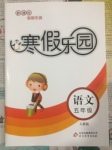题目内容
Elizabeth Blackwell was the first woman doctor in the United States. Her success opened the way for other women who wanted to do more than nursing. She was born in England in 1821 and her family moved to America when she was eleven years old.
The Blackwell girls received the same education as their brothers. This was most unusual in those days. Their father died young and they had very little money to live on. Elizabeth and her sisters taught at school. Then a woman dying of cancer urged Elizabeth to study medicine, saying that a woman doctor would have saved her from her worst sufferings. Nearly everyone said a girl should not go to medical school, but she managed to enter Geneva College in New York State. She graduated in 1849 at the head of her class and received the first medical degree ever given to a woman.
Next, Dr. Blackwell went to Paris. Her only chance of training was in a hospital where women came to have their babies. Four months later, while she was working in the French hospital, her left eye became dangerously infected (感染). She lost the eye. She was very disappointed. But she was soon back at work again, this time in London, England. There she met many famous scientists.
In 18 59, Elizabeth Blackwell was officially recognized as a doctor in Great Britain — the first woman to be honored. She was the inspiration of Elizabeth Garrett, who began the women’s medical movement in England. Florence Nightingale, founder of the practice of nursing by women, was another of her friends.
59, Elizabeth Blackwell was officially recognized as a doctor in Great Britain — the first woman to be honored. She was the inspiration of Elizabeth Garrett, who began the women’s medical movement in England. Florence Nightingale, founder of the practice of nursing by women, was another of her friends.
Dr. Blackwell died in 1910 at the age of 89.
1.Elizabeth and her sisters taught at school probably to .
A. help support the family B. become women doctors
C. get practical experience D. earn money for their education
2.What made Elizabeth decide to study medicine?
A. The education she received. B. The death of her father.
C. The sufferings of a cancer patient. D. The encouragement from a patient.
3.Which of the following is the correct order of events according to the passage?
a. Elizabeth Blackwell lost one eye.
b. Elizabeth Blackwell received a doctor’s degree.
c. Elizabeth Blackwell entered Geneva College.
d. Elizabeth Blackwell was recognized as a doctor.
e. Elizabeth Blackwell went to work in London.
A. cabed B. cbaed
C. acbed D. bcade
4.What can we infer from the last two paragraphs?
A. Elizabeth Blackwell was more famous in Britain.
B. Elizabeth Blackwell learned from other women.
C. Elizabeth Garrett gave Elizabeth Blackwell much help.
D. Florence Nightingale was encouraged by Elizabeth Blackwell.
 寒假乐园北京教育出版社系列答案
寒假乐园北京教育出版社系列答案
